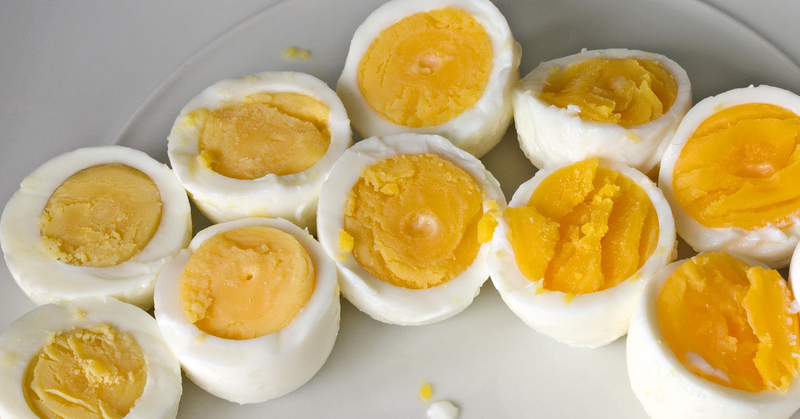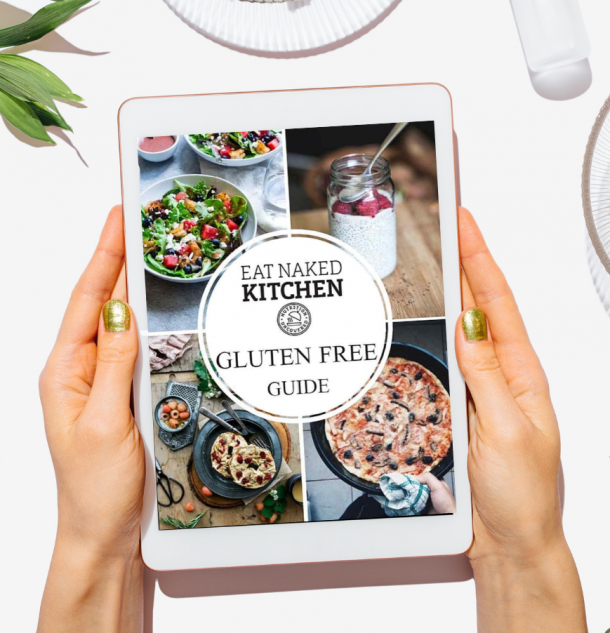 “Ask Margaret” is a new feature offered through the amazing organic grocery delivery service and one of my favorite sources of Naked foods, Spud! This weeks’ question was: I don’t have much time to cook breakfast in the mornings. What are the most nutritious things I can eat?
“Ask Margaret” is a new feature offered through the amazing organic grocery delivery service and one of my favorite sources of Naked foods, Spud! This weeks’ question was: I don’t have much time to cook breakfast in the mornings. What are the most nutritious things I can eat?
Here are some of my favorite grab-and-go breakfasts:
1-2 hardboiled eggs and some fresh fruit – you can boil eggs at the beginning of the week so you have them when you need them.
Pre-soaked oatmeal – this does require some cooking, but it’s minimal and really fast. The key is the preparation the night before. You have to put whole oats into the water at some point, right? Well, do it the night before, maybe toss in a few nuts and seeds while you’re at it and a pinch of salt, and leave it on the stove, covered, no heat overnight. In the morning when you first get up, turn on the stove to very low (you can throw in a handful of frozen berries at this point if you like), and while you’re getting dressed, etc, it will be cooking. Throw it in a bowl and add a little milk and some raw honey if you like it a bit sweeter and you’re good to go. An added benefit to soaking the oatmeal overnight is that it reduces the amount of phytic acid in the oats (an anti-nutrient that all grains, legumes and nuts have that negatively impacts your body’s mineral absorption).
Another thing to remember for breakfast is that it doesn’t have to be what we typically think of as a breakfast food: leftovers from last night’s dinner make a great breakfast. The most important thing is that there’s some good protein and fat in your breakfast so that you set yourself up well for the day. A carb-only breakfast will give you an energy crash mid-morning and set you up for sugar cravings for the rest of the day.




Hey Margaret. I always combine fruit with protein and have never seemed to have a problem with it. I’ve heard from others that this kind of “food combining” is really bad and have been advised against it.
Your thoughts?
thanks, Debra
Great question. With strict food combining, it’s a general rule of thumb to eat fruit alone because it digests and absorbs so much faster than other foods. That said, if you’re struggling with blood sugar issues, it’s important to slow down the sugar spike that eating fruit will create, and thus some protein or good fats (a handful of nuts or some whole-milk yogurt) along with the fruit will slow down its absorption. Ultimately, let your body be your guide. If eating fruit along with protein causes digestive disturbance, then eat it alone (= approx 2hrs after or a half hour before another meal). If it doesn’t cause digestive disturbance to eat them together, then eat them together, especially if you want to keep your energy consistent. Helpful?
Margaret, what about Greek Yogurt mixed with fruit and puffed rice or soaked oats in almond milk and banana instead of honey? I try to alternate, based on what my body feels. Greek yogurt is not very sweet though (I buy 0%), so I usually add some fruit. Thanks!
If you’re going to do yogurt, I’d do full fat or at least 2% so that you’re getting the longer-lasting benefits of the fat as fuel. Adding in some fruit is fine. I’d stay away from puffed rice altogether – very hard on the digestive system. Soaked oats with some butter to slow down sugar spike and some fruit (I’d prefer lower glycemic fruit than a banana – some berries or apple slices?), and even adding in a spoonful or two of the greek yogurt can be nice.
Thanks for these tips. If oats and nuts soak overnight, is it then necessary to rinse them? I often see recommendations that say nuts and grains should be soaked in salt water and then rinsed well, in order to decrease the phytic acid content.
The water doesn’t have to be salted. The soaking is what effects the phytic acid content. Rinsing is good practice though.